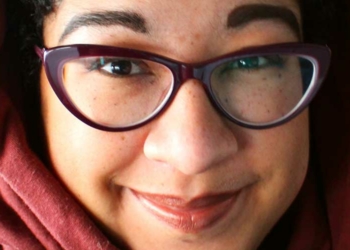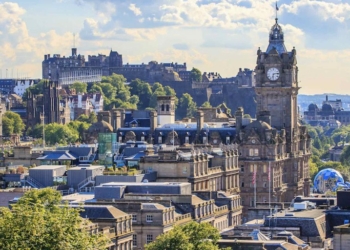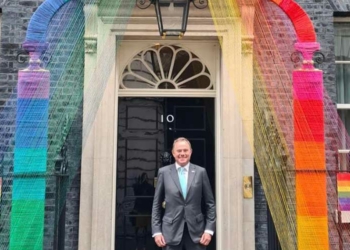Alongside thousands of teachers up and down the country, I returned to work this week to the joy of training days. This year however, I had a special treat: a two hour ‘Diversity and Inclusion’ training course that taught me, amongst other things, that the word ‘homosexual’ was outdated and offensive. Now, naturally, this took me by surprise. After all, it’s a lot to hear that, by defining yourself as a homosexual woman, you’ve been committing a hate crime against yourself for years. Not to mention I can’t remember the invite to the vote in which we homosexuals (sorry, LGBTQ++ people) decided that a word which very clearly just defines our sexual orientation was now the equivalent of ‘hate speech’. But in addition to this, this diversity training got me thinking. Not necessarily about word reclaiming (although that is certainly something we need to discuss), but about how the conversation around homophobia and language is increasingly infantilising the gay community.
What do I mean here? In a previous job, I attended an ‘LGBT Equality’ workshop, co-ordinated by the organisation’s LGBT network. The session was largely uninteresting, apart from when the woman leading the session told us how she’d only recently come out, explaining how it was so hard hiding her true identity, and that it was only seeing other staff be so open that made her feel ‘safe’ to do so. Great, right?
Except, this woman was already out. She’d worked as an out lesbian at this organisation for years, all she’d done was recently move departments. We all knew she had a wife. Some of us had even met her. Yet this woman was speaking as though she had never told a soul. And I left the session feeling only confused – what had made a middle-aged, married, out gay woman talk about her sexuality as if she were a teenager coming out of the closet? Where was that so-called ‘Pride’ we are all told is so central to our lives?
I found out the reason we’re supposed to see ‘homosexual’ as offensive is because it contains the word ‘sex’, and apparently it’s wrong to associate being gay with sex. Now, this feels far more homophobic to me than the word ‘homosexual’ ever has.
The answer, I believe, is shame. Despite years of campaigning, the way we talk about homophobia and language feels like we still see being gay, and having gay relationships, as something inherently shameful. I found out the reason we’re supposed to see ‘homosexual’ as offensive is because it contains the word ‘sex’, and apparently it’s wrong to associate being gay with sex. Now, this feels far more homophobic to me than the word ‘homosexual’ ever has. After all, we aren’t being told to get rid of ‘heterosexual’. The word ‘lesbian’ has faced similar attempts at erasure, as people argue it is too closely linked to pornography, and we should all adopt the non-sexual ‘queer’ instead. Gay people, it seems, should not be seen in any way as sexual beings.
But it goes further than attempts to cut out any language that suggests we are adults, with adult relationships. We are also infantilised in how people are told to treat us. Diversity workshops tell people to ask each other about their ‘partners’, supposedly so to make gay employees not yet out feel more comfortable. Yet, unless you keep your partner gender-neutral, you are still going to have to out yourself at some point. Not to mention, we’re talking here about adults. Gay adults aren’t going to break down in tears if their colleague gets the sex of their partner wrong. Most of us are far more resilient. The same is true of telling people they can never ‘out’ a colleague. True, of course, except it is being increasingly used as a blanket rule for any gay colleague, even those already very much out of the closet. Again, gay adults are not children, we can tell a colleague if we’d like them not to talk about us. We don’t need it taught to them.
As much as we talk about Pride, and no matter how many rainbows we stick up in our offices every June, we have not yet imagined a world in which people are not somewhat ashamed of being gay.
But this again comes back to shame. As much as we talk about Pride, and no matter how many rainbows we stick up in our offices every June, we have not yet imagined a world in which people are not somewhat ashamed of being gay. Straight people expect us still to talk in whispers, to want to hide our relationships and realities, and in expecting this, have prevented the march forwards towards gay liberation. If we stopped this, if we stopped treating our own sexualities as secrets, if we stopped playing along by using gender neutral words for our partners, if we claimed our language back, we would find far more acceptance than a couple of pride flags could ever achieve.
Now, I know we don’t live in a homophobia free world. I’ve worked in homophobic schools. I’ve had students attempt to follow me home and threaten to beat me. I’ve had senior colleagues tell their departments that if they talk to any gay staff, they will face schoolwide ostracisation and will never be promoted. And yet, I would rather still be out, and genuinely proud, than treat myself as if I am something shameful. And I feel this has far more impact than any of the infantilising conversation around ‘inclusive language’.
So yes, however outdated it may sound, I am a homosexual. And no amount of ‘Diversity’ training will make me ashamed to say it.
Kat Howard is a lesbian radical feminist, working as a writer and secondary school teacher.
Kat Howard tweets at @RadFem_KatH
























Culture capture ocurrs most effectively, and insidiously, with LANGUAGE. We MUST reclaim our WORDS if our actions are to be successful!
Even though the concept came from a good place, I've come to oppose so-called diversity training. Often, the people doing it are smug and accusatory. At other times, they seem to be just going through the motions. I have attended several diversity trainings in numerous workplaces, and every time it was an endurance test! Nobody comes out of these seminars feeling good. In a few cases, people left them angry and resentful. If the purpose is to encourage tolerance, the mark is being missed by a longshot. Gay people aren't well-served by diversity training, and neither is any other oppressed group. There's got to be a better way.